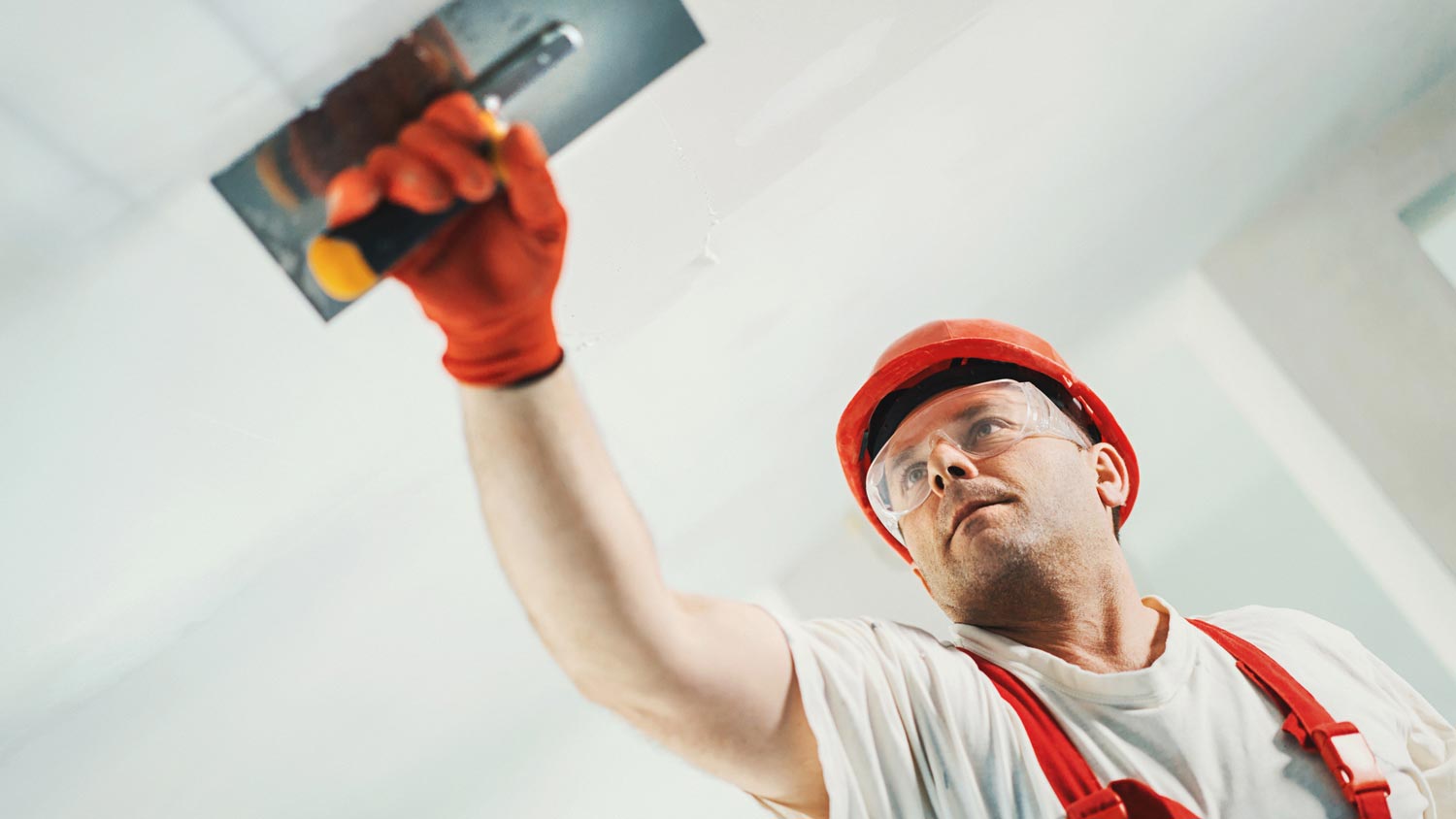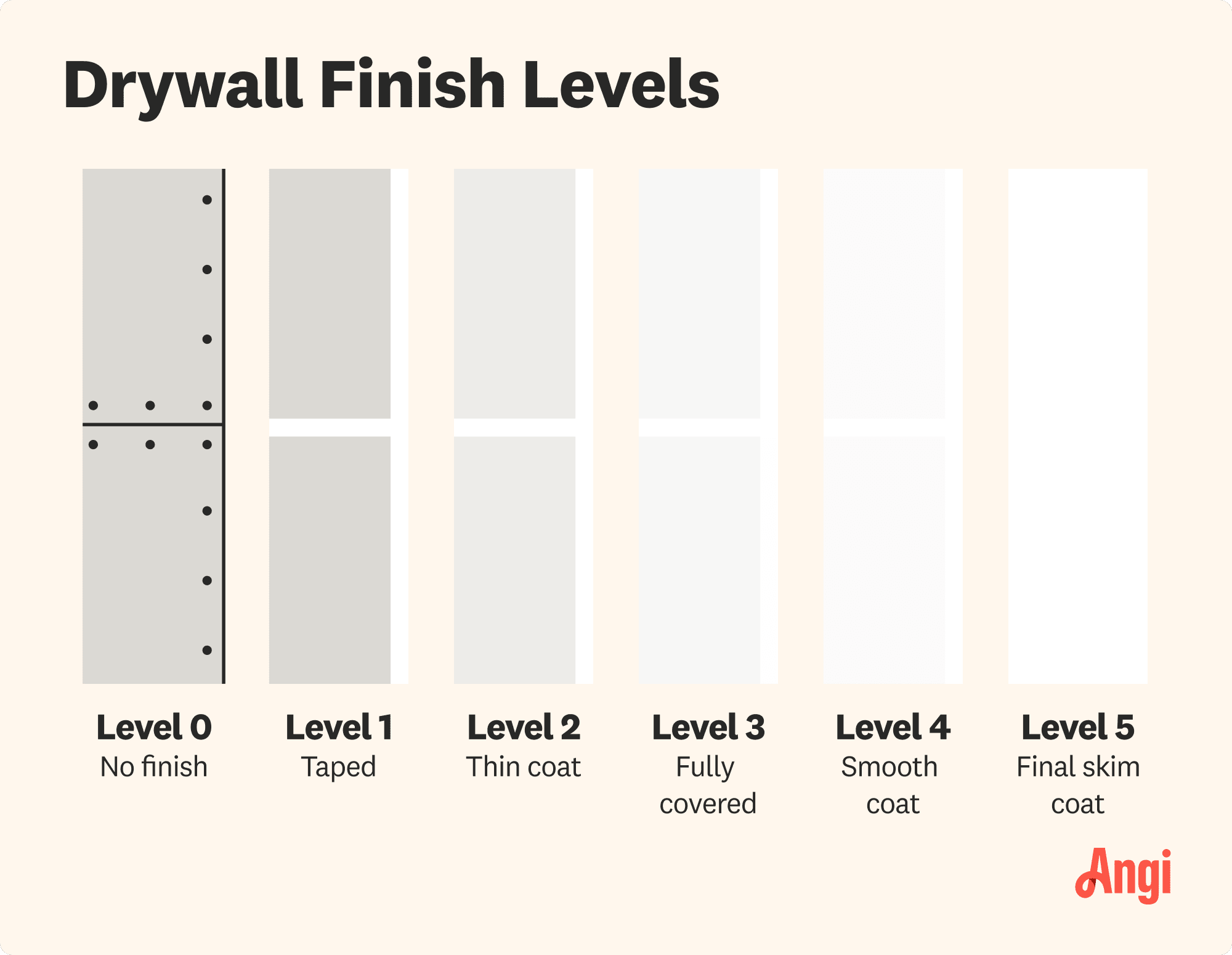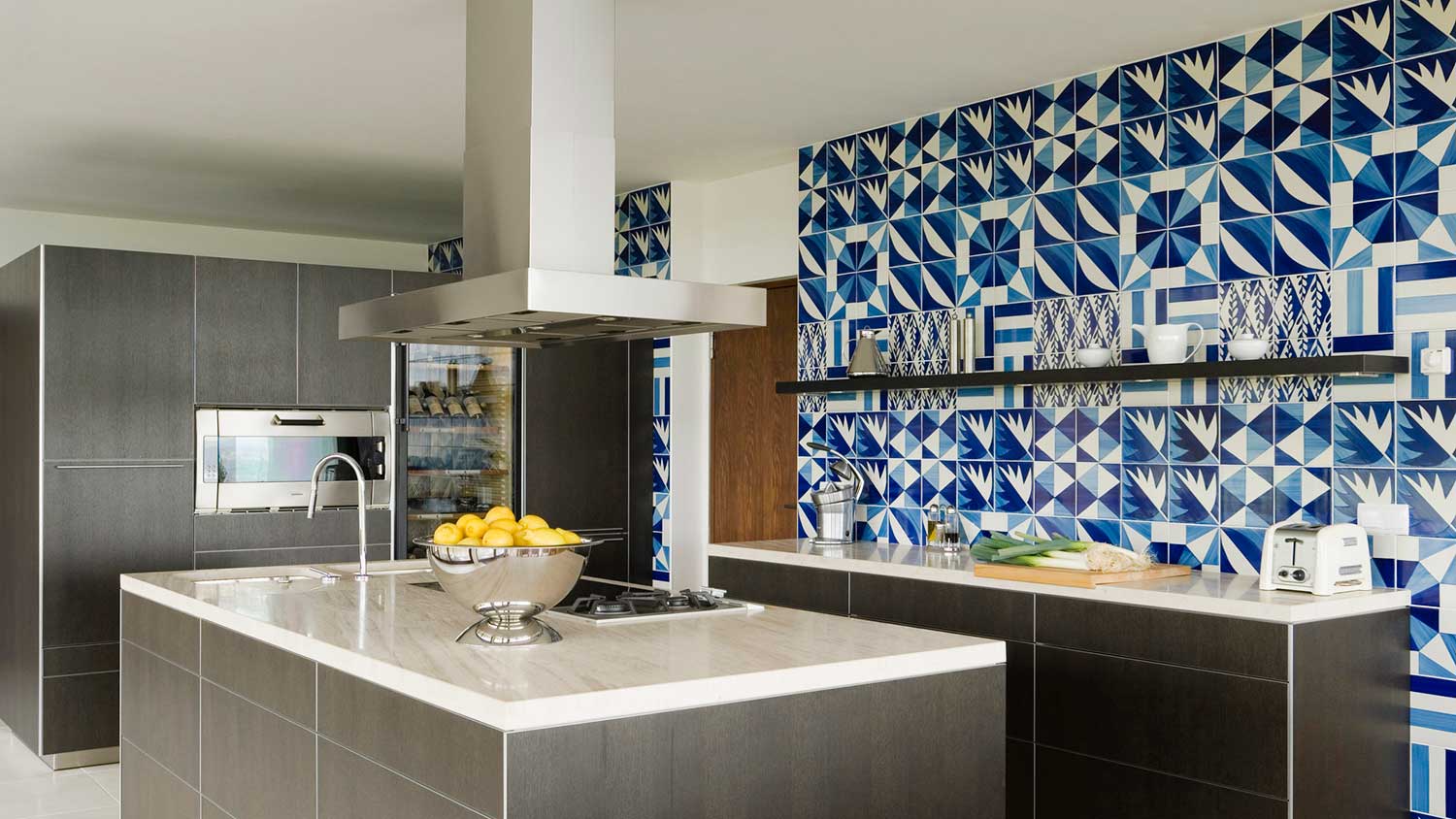
Skim coating drywall is a great alternative to replacement, and is often more affordable. Use this guide to estimate the cost to skim coat walls in your home.
Drywall service costs depend on your project and location. Check with a local pro for your specific job.
Austin, Texas, homeowners replacing drywall damaged from moisture or mold from the city's high-humidity climate should consider upgrading to mold-resistant or moisture-resistant drywall to maximize ROI.
In general, drywall installer labor rates are lower than average in Austin because of relaxed licensing and insurance requirements on both the statewide and citywide levels.
Austin homeowners generally don't have to pay permit fees for new drywall unless this project is part of a larger renovation.
Whether springing for mold-resistant drywall to keep things dry in Austin's humid climate or picking standard materials, homeowners in Austin are paying slightly below the national average for this project. The average drywall installation cost in Austin is $1,874. However, homeowners can expect to pay anywhere from $742 to $3,007 with drywall materials and installation labor in the mix. Keep reading to learn more about what goes into budgeting for new drywall in Austin, Texas.
As you budget for new drywall in Austin, Texas, factors like the number of walls you're putting up and the layout of your home influence the final cost.
Whether you’re working on a small bathroom or a spacious living room, having an estimate of costs based on room size can help you plan your budget more effectively. Installing drywall in a small bathroom of around 100 square feet will cost $400 to $650, while for a large living room, it can range from $1,500 to $3,000.
Here’s a chart that gives the average costs for installing drywall—including materials and labor—in different common room sizes:
| Room Size in Sq. Ft. | Average Cost |
|---|---|
| 100 | $400–$500 |
| 200 | $800–$1,000 |
| 300 | $1,200–$1,500 |
| 400 | $1,600–$2,000 |
| 500 | $2,000–$2,500 |
Standard drywall is the most affordable option, but more expensive types may be worth the additional investment in some scenarios.
| Drywall Type | Best Use | Average Cost of Materials per Square Foot |
|---|---|---|
| Moisture-resistant | Bathrooms, kitchens | $0.40–$0.60 |
| Mold-resistant | Extra-moist areas | $0.55–$0.65 |
| Fire-resistant | Garages, boiler rooms, commercial buildings | $0.70–$0.80 |
| Soundproof | Music rooms, kids’ rooms, primary bedrooms | $1.40–$2.50 |
| Eco-friendly | All rooms | $0.50–$1 |
Drywall thickness can sway your total price. If you’re on a minimal budget, you might want to opt for the thinnest quarter-inch panels. Three-eighths-inch and half-inch are the most common varieties. Soundproof and fire-resistant panels are usually five-eighths-inch thick. Drywall is sometimes available in 3/4" thicknesses for added soundproofing.
| Drywall Thickness (Inches) | Ideal Use Case | Average Cost per Panel |
|---|---|---|
| 1/4 | Curved areas or patches | $13 |
| 3/8 | Patches or repairs | $14 |
| 1/2 | Standard walls | $17 |
| 5/8 | Standard ceilings, fire-proofing | $18 |
| 3/4 | Sound-proofing, fire-proofing | $21 |

Your drywall installation costs will vary depending on what level of drywall finish you agree upon with your contractor.
| Level | Description | Average Cost (per Sq. Ft.) |
|---|---|---|
| 0 | Contractor hangs the drywall and no more | $0.70–$1 |
| 1 | Drywall has the seams sealed with tape and then covered with mud | $1–$1.75 |
| 2 | Has one coat of joint compound, typically to allow tiling on top | $1–$3 |
| 3 | Has two coats of joint compound for a smoother finish | $1.50–$3 |
| 4 | If you plan to use matte paint, pros recommend the application of three coats of joint compound | $1.50–$2.25 |
| 5 | A very high-quality finish which is the best option for enamel and gloss paint application. This includes three coats of joint compound and a full skim coat for a super-smooth appearance | $1.75–$3 |
Drywall installation is split nearly evenly between labor and installation. When hiring someone who knows how to hang drywall in Austin, expect contractors to charge a flat rate per square foot based on factors that include the amount and quality of drywall you select, the labor and time needed for installation, and behind-the-scenes costs for doing business in Austin.
On average, drywall installation pros in Austin, Texas, charge between $1 and $2 per square foot of drywall installed for labor. Depending on the complexity of the project and the techniques and equipment needed for how to hang drywall based on your home's layout, labor charges can vary.
Permits aren't usually required to hang drywall if you're doing a like-kind replacement. However, new drywall being applied as part of an addition or remodel will likely come with permit fees. With Austin residential remodeling and construction permits having sliding costs, you might expect to pay between $50 and $130 in permits.
Aside from contractors doing work on city property, Austin doesn't have insurance requirements for contractors. However, most contracts do carry liability and workers' compensation insurance costing anywhere from $60 to $200 monthly.
In general, any materials purchased for new drywall installation in Austin are subject to a combined sales tax rate of 8.25%. This includes a 6.25% Texas sales tax, 1% Austin sales tax, and 1% Metropolitan Transit Authority (MTA) special tax.
While there's no licensing requirement for contractors in Texas, any contractor doing work that requires permits within Austin must be registered with the city. A lack of licensing fees helps Austin contractors to reduce their rates because they don't need to pass registration and renewal costs down to their clients.
Adding new drywall to an Austin home can add value when a homeowner is upgrading water-damaged or mold-infested drywall that was compromising a home's integrity. High humidity rates in the summer in Austin can cause moisture issues in homes that were built with poor-quality drywall. To maximize the ROI on this project, consider moisture-resistant or mold-resistant drywall costing between $0.45 and $0.65 per square foot.
Home is the most important place on earth, which is why Angi has helped more than 150 million homeowners transform their houses into homes they adore. To help homeowners with their next project, Angi provides readers with the most accurate cost data and upholds strict editorial standards. We survey real Angi customers about their project costs to develop the pricing data you see, so you can make the best decisions for you and your home. We pair this data with research from reputable sources, including the U.S. Bureau of Labor Statistics, academic journals, market studies, and interviews with industry experts—all to ensure our prices reflect real-world projects.
Want to help us improve our cost data? Send us a recent project quote to [email protected]. Quotes and personal information will not be shared publicly.
From average costs to expert advice, get all the answers you need to get your job done.

Skim coating drywall is a great alternative to replacement, and is often more affordable. Use this guide to estimate the cost to skim coat walls in your home.

Drywall texture can create an attractive finish and add dimension to your home’s walls. This guide breaks down the factors that influence the cost to texture drywall.

Pre-drywall inspection costs vary depending on the home size, build complexity, and reporting you receive. Estimate your budget with this cost guide.

Drown out noisy neighbors and create a quiet haven with our guide on how to soundproof a wall. Transform blasting to bliss with a little hard work.

Cement backer board provides a solid surface for tiles. This guide on how to cut cement board should make your tiling project easier and faster.

Not sure what type of interior wall material to choose for your home? We’re breaking down the great debate between blueboard vs drywall. Read on to learn more.